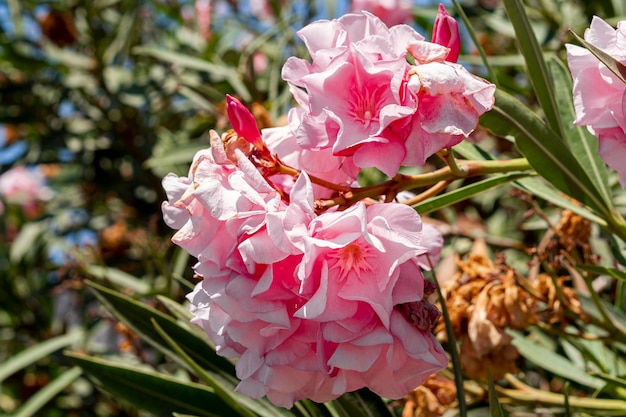
Aniba rosaeodora, commonly known as Rosewood, offers a variety of benefits, including easing minor pain and inflammation, combating bacterial, viral, and fungal issues, reducing unwanted muscle spasms, and helping improve sleep. It’s also known for alleviating depression. This essential oil comes from a tropical evergreen tree found in Brazil and Peru, characterized by its warm, woodsy, sweet, and spicy aroma. The tree can reach up to 40 meters tall and is known for its reddish bark and yellow flowers.
The relaxing aroma of Rosewood helps in relieving tension with its combination of woodsy and rosy floral notes. While it is well-regarded in the fragrance world, its therapeutic benefits might not be as widely recognized. Rosewood oil is a valuable addition to skincare, hair care, health regimens, and aromatherapy.
For skincare, Rosewood helps soothe dry skin and reduce signs of aging due to its compounds that decrease inflammation and promote skin moisture. It is renowned for its anti-inflammatory, stimulating, and pain-relieving properties. It helps manage oily, acne-prone skin and provides lipids to aging skin, addressing various skin conditions like dryness, dandruff, bug bites, rashes, and allergies. Rosewood is notably effective in easing eczema rashes, offering relief by fighting skin bacteria and fungus.
If traditional medications don’t seem to alleviate pain, you might consider natural alternatives like essential oils. Rosewood, with its pain-relieving and anti-inflammatory qualities, has proven effective for treating pain, tension, and swelling. It also supports emotional well-being by promoting relaxation, which can be particularly beneficial when dealing with pain.
Getting a good night’s sleep is crucial for overall well-being. If sleep is elusive, Rosewood might help, as research shows essential oils can enhance sleep quality. It offers a soothing scent that aids in relaxation and serves as a natural remedy for anxiety.
Essential oils have supported mental and physical wellness for centuries. Rosewood, with a history of use in managing depression and stress, helps reduce hyperactivity, calm the nervous system, lower blood pressure, and alleviate anxiety and depression by combining relaxation with mood enhancement.
When it comes to colds, if traditional medicines don’t suffice, Rosewood might help alleviate symptoms like congestion and potentially shorten a cold’s duration. It acts as a decongestant, clears stuffiness, and provides antibacterial benefits to tackle respiratory infections and soothe throat irritations.
Additionally, essential oils have long been used to repel insects or treat bites. Rosewood can be applied diluted on the skin to keep pests away or to treat bites subsequently.
A diffuser can disperse Rosewood’s calming aroma into the air. Alternatively, you can inhale its fragrance directly from the bottle for stress relief. For steam inhalation, add a few drops to your shower or a bowl of hot water and breathe deeply under a towel-draped setup.
Incorporate Rosewood into your skincare routine by diluting it with a carrier oil and applying it to your skin, or adding it to your cosmetics like toners and serums. It can also offer relaxation when rubbed onto sore muscles or pressure points.
Rosewood has a reputation for fostering spiritual healing, but it’s important to note that it’s on the endangered species list due to unethical harvesting practices. To ensure sustainability, consider using alternative oils like ho wood or coriander seed oil, which also contain high levels of linalool and offer similar aromatic qualities.















